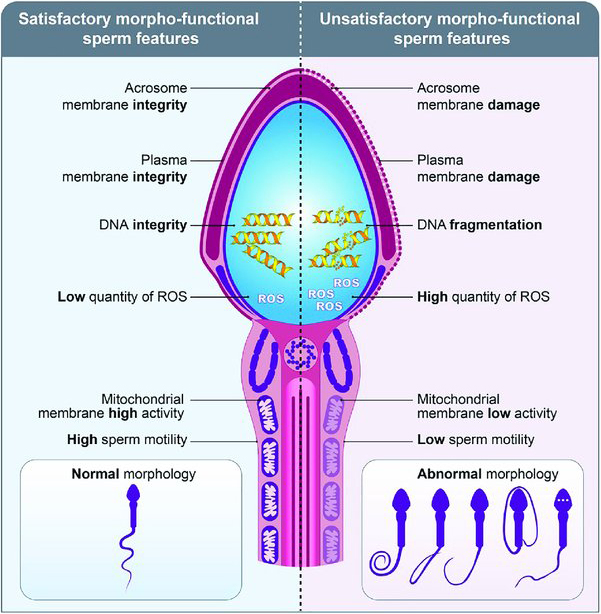Unexplained Infertility Causes and Management
What is unexplained infertility?
Unexplained Infertility is that condition when the standard investigations of the infertile couple like semen analysis, tubal patency and ovulation studies are normal, and they are unable to conceive within one year of unprotected intercourse.
Normally about 90% couple conceive within one year of unprotected intercourse. When the remaining couple are investigated, no apparent abnormality is found in about 15-30% of cases and these constitute unexplained infertility.
Why is the infertility unexplained?
There are several steps in the process of eggs and sperms fusing to form the embryo, which are as yet not understood by scientific research. Eg the process of and molecular mechanisms involved in the implantation of the embryo into the uterine lining, the endometrium. Also there are other factors, which though well understood, lack robust diagnostic methods. These include amongst others the process of sperm capacitation, sperm binding to and penetration of zona pellucida, the quality of an egg which looks morphologically normal, the bi-directional flow of the uterine tubes etc.
Hence the term ‘Unexplained’ is applicable to the inability to assess certain factors and not the absence of any such abnormalities.

What are the possible causes of unexplained Infertility?
The causes can be male factor, female factor or combined factors.
The male factors could be inability of sperms to penetrate the cervical mucus due to defects of the sperm heads, defects in the fertilization capacity of the sperms. This could be due to sperm DNA damage, immune factors, oxidative stress, genetic factors.
The female factors include defects in the eggs ( especially with increasing age), tubal abnormalities like sacculations, diverticulae, bidirectional motility, phimosis etc, inappropriate endometrial ( lining of uterus) receptivity, endometriosis, LPD (Luteal phase defects)endocrine, genetic and immunologic factors.
Defective embryo factors are abnormal development due to fertilization failure or new, inappropriate embryonic transcription at 4-cell stage.
Erectile dysfunction, anejaculation, improper timing of intercourse are also factors that can be contributory.
What are the diagnostic tests that can be offered to the couple with unexplained Infertility?
There exist many tests that are offered to the couple, several of which are expensive. A repeat semen analysis from an andrology lab and testing for tubal patency by HSG (hysterosalpingography) or Laparoscopy is the initial work up. Laparoscopy often reveals hereto undiagnosed endometriosis, adhesions and various tubal pathologies that cannot be picked up on scans.
Sperm DFI ( DNA fragmentation test) , testing for ROS ( Reactive Oxygen Species) and anti-sperm antibodies are other tests that are used. Some of them lack a consensus and there exists a need for further well designed studies for standardization of these tests.
Hormonal tests for assessing the ovarian reserves ( day 2 baseline FSH, LH, AMH), transvaginal preferably 3D ultrasound to detect any uterine abnormalities, Assessing the ovarian reserve by Antral follicular count on day 2 or day3 of periods, evaluating the tubes by HSG, laparoscopy are some of the tests for the female partner.
What is the further management of couples with Unexplained Infertility?
The aim of therapy is to increase the monthly pregnancy rate above the natural one of 1.5-3%. This is done by either increasing the number of gametes ( which will increase the chance) or by improving gamete quality.
Expectant management ( life style changes, timed intercourse ) can be offered if the woman is young and the duration of infertility is less than 2 years and in low resource settins.
Ovulation induction with Clomiphene citrate, Letrozole or Gonadotropins with monitoring for ovulation can be offered.
Ovulation induction with IUI ( Intrauterine insemination) yields good results in couple with mild male subfertility and in over 50% patients in whom conventional therapies have failed.
IVF ( In Vitro Fertilization) / ICSI ( Intracytoplasmic Sperm Injection) is offered in these cases to increase the number and possibly the quality of eggs and also to facilitate sperm-egg interaction and enhance the fertilization possibility. ICSI maybe offered as a first line of therapy in unexplained infertility when the woman is over 35 years and also as subsequent treatment when previous IUIs have failed
Hence, Unexplained Infertility is an enigma with no standard list of investigations. The couple have to approached with empathy, counselled appropriately and offered the evidence based treatments keeping in mind the cost factor also.
For more info, Follow : medlineacademics.com
